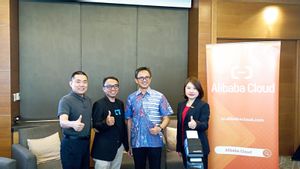JAKARTA - The second week of the strike by the Screen Actors Guild-American Federation of Television and Radio Artists/Writers Guild of America (SAG-AFTRA/WGA) regarding the use of artificial intelligence (AI) in film and TV production has begun. However, in the midst of this strike, Netflix instead opened job vacancies for AI developers to fill the Product Manager and Technical Director positions within the R&D Labs and Machine Learning divisions.
In the job advertisement, Netflix stated that they would be opening a new product management position with the aim of increasing the effectiveness of their Machine Learning Platform.
According to Netflix, both roles will be located at the streaming platform's headquarters in Los Gatos, California, but will also provide the flexibility to work remotely. These two positions offer a six-figure salary, ranging from USD 450,000 to 650,000 (IDR 6.7 to 9.7 billion) per year for the Technical Director position and USD 300,000 to 900,000 (IDR 4.5 to 13.5 billion) per year for the position Product Manager.
Both screenwriters and actors in Hollywood have expressed concern about the growing use of AI. Screenwriters worry that generative AI tools, such as ChatGPT, could potentially replace their jobs, while actors worry about having their faces and bodies scanned for background roles.
The logging of this data raises concerns about using their images indefinitely and with minimal or no compensation.
اقرأ أيضا:
The job advertisement highlights the significant demand for expertise in machine learning and AI, especially given the rapid advances of AI since the introduction of ChatGPT from OpenAI in November 2022. Both positions require experience in the game design and machine learning domains. Interestingly, neither of these roles explicitly require a bachelor's degree as a requirement.
According to Netflix job advertisements on LinkedIn, these positions emerged last week, which drew attention because it coincided with failed negotiations between SAG-AFTRA and the Film and Television Producers Alliance (AMPTP). As a result, actors showing solidarity with the striking writers decided to join them in the striking line.
This development adds another level of significance to the situation, where both parties expressed their concerns and demands through collective action during a critical period of contract negotiations in the film and television industry.
The English, Chinese, Japanese, Arabic, and French versions are automatically generated by the AI. So there may still be inaccuracies in translating, please always see Indonesian as our main language. (system supported by DigitalSiber.id)


















